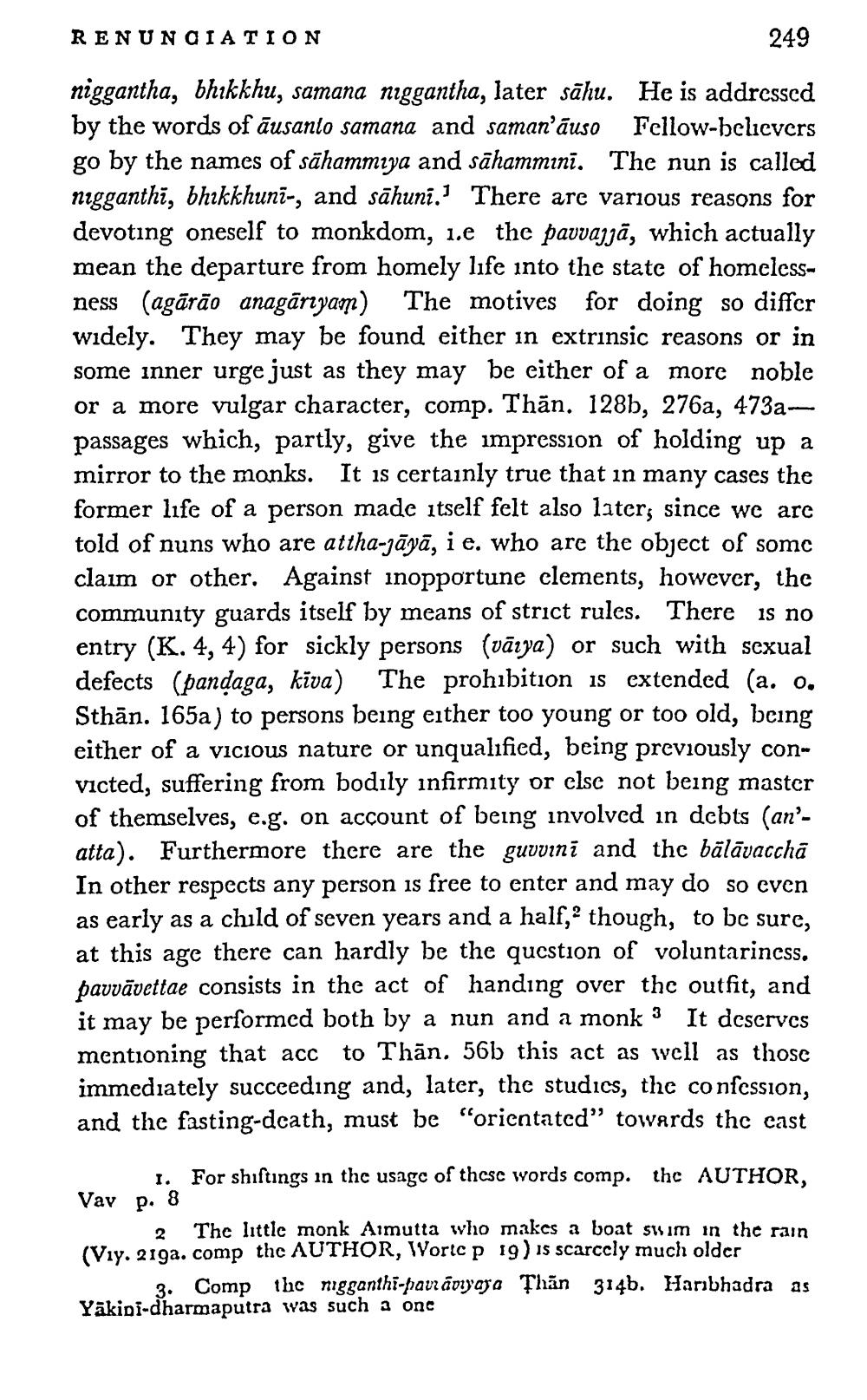________________
RENUNCIATION
249
niggantha, bhikkhu, samana niggantha, later sāhu. He is addressed by the words of āusanto samana and saman'āuso Fellow-bclicvers go by the names of sähammiya and sāhammini. The nun is called nigganthi, bhikkhuni-, and sāhuni. There are various reasons for devoting oneself to monkdom, 1.e the pavvajjā, which actually mean the departure from homely life into the state of homelessness (agārão anagāriyam) The motives for doing so differ widely. They may be found either in extrinsic reasons or in some inner urge just as they may be either of a more noble or a more vulgar character, comp. Thān. 128b, 276a, 473a passages which, partly, give the impression of holding up a mirror to the monks. It is certainly true that in many cases the former life of a person made itself felt also laters since we are told of nuns who are attha-jāyā, i e. who are the object of somc claim or other. Against inopportune clements, however, the community guards itself by means of strict rules. There is no entry (K. 4, 4) for sickly persons (vārya) or such with sexual defects (pandaga, kiva) The prohibition is extended (a. 0. Sthān. 165a) to persons being either too young or too old, being either of a vicious nature or unqualified, being previously convicted, suffering from bodily infirmity or else not being master of themselves, e.g. on account of being involved in debts (an'atta). Furthermore there are the guuvinī and thc bālāvacchā In other respects any person is free to enter and may do so even as early as a child of seven years and a half,” though, to be sure, at this age there can hardly be the qucstion of voluntarincss. pavvāvettae consists in the act of handing over the outfit, and it may be performed both by a nun and a monk 3 It deserves mentioning that acc to Thān. 56b this act as well as those immediately succeeding and, later, the studıcs, the confession, and the fasting-death, must be "orientated" towards the cast
1. For shiftings in thc usage of these words comp. the AUTHOR, Vav p. 8
2 The little monk Aimutta who makes a boat swim in the rain (Vıy. 219a. comp thc AUTHOR, IVortcp 19) 15 scarcely much older
2. Comp the nigganthi-havadyaya Thăn 314b. Haribhadra as Yakipi-dharmaputra was such a onc




